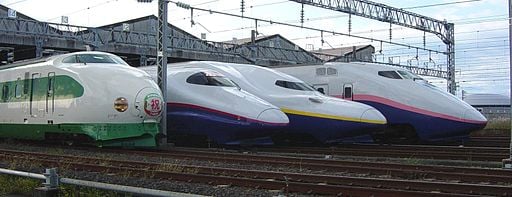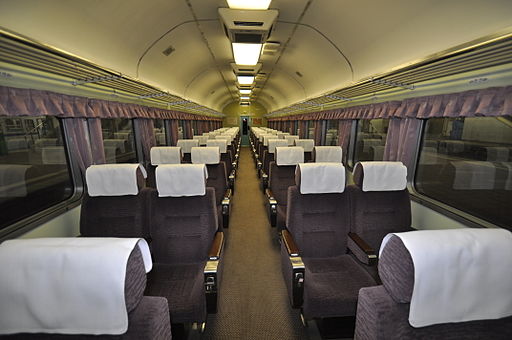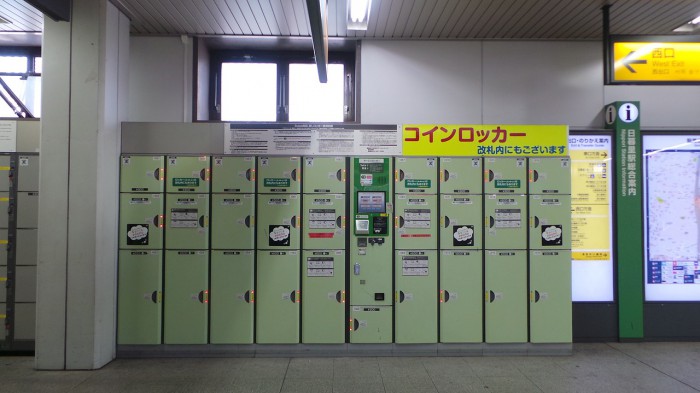Travel in Japan: Make the Most of the Japan Rail Pass
The island nation of Japan is small enough to traverse easily during a single trip. To make travel even more convenient, many tourists buy a Japan Rail Pass (JR Pass for short) to take advantage of the many train lines across Japan. The JR Pass is offered by the Japan Railways Group (JR Group) comprised of six railroad companies. It is the most economical and convenient way to travel across Japan, especially for train lovers! You will be able to sit back, relax, and enjoy the majestic scenery of Japan. Here is a compiled guide to help make the most of the JR Pass and some tips for travelling by train in Japan:
Eligibility
The JR Group is quite strict about the customer eligibility of the JR Pass. There are only a few select groups of people who are allowed to purchase and utilize the pass.
1. Foreign tourists visiting Japan for sightseeing purposes with passport entry stamp of “temporary visitor” valid up to 90 days.
2. Japanese national living outside of Japan who has permanent residency in that country or married to a non-Japanese residing in another country.
The JR Pass
There are two types of JR Passes: Green (for first-class Green cars), and Ordinary (for normal coach cars). Both types is available for unlimited rides, as a 7-day, 14-day, or 21-day pass to be used on consecutive days. The price of the ticket is equivalent to about three normal-priced trips per week, so if you plan on taking more than three train trips in a week, it is worth it to buy the pass. There are separate adult and child prices. You must always carry your passport with you when you present your pass at the ticket counter. If you have the Green pass, you still need to reserve your selected seat ahead of time at the ticket counter.
Available Transport Lines
1. All JR Group Railways Shinkansen bullet trains, limited express trains, express trains, rapid or local trains, and the BRT (with a few exceptions)
2. Tokyo Monorail
3. Local lines of JR Bus
4. JR West Miyajima ferry

Photo Shinkansen via Wikipedia / Damasa
Purchasing the JR Pass
The JR Pass can only be bought outside of Japan before arrival. The passes are available for purchase from JTB Corp., Nippon Travel Agency, Kintetsu International, Tobu Top Tours, Japan Airlines, Nippon Airways, JALPAK, and their associated agencies. You can either buy the pass in person at a sales office or online through their web service. You will receive a Purchase Order to exchange for the actual pass upon your arrival in Japan. With your passport, you can obtain the pass at any major JR station exchange office. You must have the actual JR pass when riding, not the Purchase Order. If you have purchased a Green pass, you can make a seat reservation at this time.

Photo via Wikipedia / EIHEITAI-EISHI
Travel Tips in Japan
Japan is tourist friendly in terms of public transportation and ease of travel. All JR stations will have station names written in Japanese characters and English translations below. Coin lockers and public telephones are available in stations to use as needed. Some stations have free WiFi, although not all, so make sure you have either an international plan to connect to the internet or printed out guide book for necessary help. The worst hours to ride transportation in Japan is obviously during rush hour. If possible, avoid taking a train between 7:30 – 9:30 am and 5:00 – 8:00 pm during weekdays. If you do have to travel during this time, you will get an interesting look at local life, where many workers commute long distances daily in a crowded train. In major cities, it is common for workers to commute from 30 minutes to 2 hours each way to their workplace!

Photo Lockers via Pixabay / 3analytics
Train stations are quite luxurious in Japan, so make sure to arrive early and enjoy the amenities! Most stations have full shopping centres with stores to buy clothes, convenience stores, pharmacies, and vending machines. Arrive hungry! High quality restaurants and cafes are located inside or alongside train stations. If you are in a rush, you can buy a traditional Ekiben, a special bento lunch boxes for train riders. These will contain a small variety of Japanese dishes and snacks such as rice, meat, fish, vegetables, and dessert.
Want to learn Japanese before your trip to Japan? Click here for a free Japanese level test!
Japanese Travel Vocabulary
Since not every station worker will be able to speak English to help if you are lost or need assistance, it is a great idea to learn some key travel words in Japanese. Here are a few commonplace words:
Reservation: Yoyaku
Travel Service Center: Ryoko Center
Ticket Office: Midori no Madoguchi; Kippu Uriba
Ticket: Kippu
Super Express Train (Bullet Train): Shinkansen
Limited Express Train: Tokkyu
Express Train: Kyuko
Rapid Train: Kaisoku
Local Train: Kakuekiteisha
Coach Car: Futusha
Green Car (First-Class Car): Greensha
Reserved Seat: Shiteiseki
Non-Reserved Seat: Jiyuseki
Exit: Deguchi
Train Station: Eki
Map: Chizu
Subway: Chikatetsu
Train: Densha
